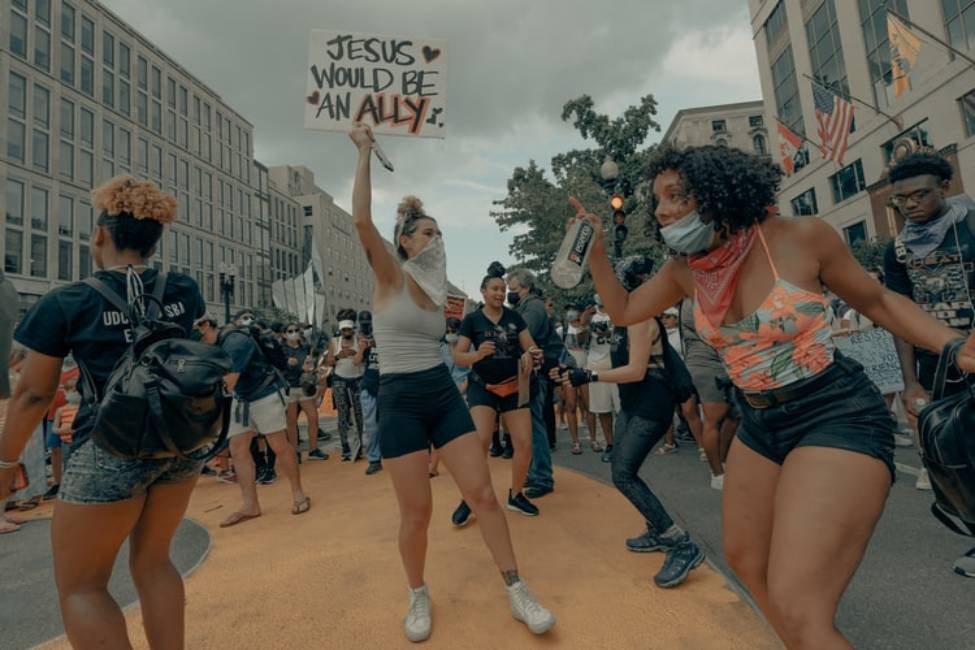Speaking Out Against Injustice
by Lexis Barbieri | Thursday, Oct 01, 2020
I am the daughter of a retired law enforcement officer of 35 years. My father, along with some cops, have worked hard to help keep America safe. Unlike most law enforcement, my dad has a degree in psychology and criminology. This, my father tells me, is what separates him from most cops-- and the fact that he used his experience in law enforcement to recognize his own racial bias. He has lived through and seen police brutality against African Americans throughout his career; we are both fed up.
Now this isn't a recent problem. Talk about police brutality can be traced all the way back to 1963, when Martin Luther King Jr. gave his speech at the March on Washington. But, only recently do we have reliable data on police killings. Since 2013, 1,944 Black Americans have been killed by the police. Practically none of these killings have seen justice, with under 1% of them reaching a conviction.
We continue to see the consequences of systemic racism today in our society: the still lasting effects of redlining 50 years after its illegalization, Black people being disproportionately arrested, surveilled, and jailed, and studies showing that the exact same resumes will get twice as many callbacks if the name is White-sounding versus if it is Black-sounding. Not only is this damaging in ways we can see, but ways we can’t see as well. Physical violence is just as harmful as psychological violence; the mental health of Americans cannot be ignored any longer. Combatting and reversing the damage systemic racism does to our society can’t happen overnight. But, I suggest we start by defunding the police. Let me explain what I mean by that.
My father and I frequently discuss matters of the police and of course the most recent topic of defunding them. “Defund the police” is a terribly misleading phrase; it does not mean to dismantle the police. I offer you a better phrase: reassess policing supplementations. What this means is that we need to re-evaluate the extra funding that state, local agencies, and the federal government administer to the police departments, and redistribute them to much needed non-policing social services like mental health/healthcare, adequate public housing, and education.
For those who think that we shouldn’t defund the police, and we should just reform them instead, let's look at the history of the police. The police were first formed in the early 1800’s to control the slave population. In the South, the police were known as the “Slave Patrol” and in the North the police were primarily used for immigration and to control the Indigenous population. From its beginnings, the police department was a racist establishment designed to control people of color using violence. So, the reform of the police department is unlikely. You cannot remove racism from an establishment that was founded on it.
We never talk about what kind of fearfulness this may incite within communities of color. Every time someone of color is pulled over, approached, or even passes by a cop car, they may be feeling a pang of terror. Or wondering if they’ll get killed for running around with their water gun like 12 year old Tamir Rice. Or like Atatiana Jefferson, for simply being in her home. Black people are not safe in this country. Frequently on TV I see “unarmed Black person shot and killed by the police.” I fear for my Black friends who live in this country.
Yes, black lives do matter! All lives can't matter until black lives do. I also acknowledge the irony of my white skin trying to explain BLM, but I am simply using my privileged voice for those who you refuse to listen to.
The United States spends around 100 billion dollars on the police each year; which explains why police departments have riot gear at a moment’s notice yet hospitals barely have the basic necessities during a global pandemic. Yet, instead of curtailing the money we allocate for the police department and putting it into other areas of need like mental health, drug addiction, and grossly underfunded schools, we expect the police department to handle all of these problems. We simply ask police departments to do things they are not trained to do. This is why 1 in 4 deaths during police shootings are those with mental health problems.
For example, let's talk about Daniel Prude. He was 41 years old at the time he was killed. He died from asphyxia complications after he was pinned to the ground by police officers. His brother called to get him help; he was suffering with mental health problems. I would argue that those police officers should not be responding to mental-health related 911 phone calls because this can be the result. They are not trained mental-health professionals-- if you want them responding to such calls, train them as such. Require them to have degrees in psychology or criminal justice and to obtain mental health licenses as we do for mental health providers. Or, if the police must be sent, send mental health professionals along on such calls.
We can lift those up who are suffering. The police should not be given tasks they are not trained to do. I hope we choose to spend some of this money elsewhere, in places that will benefit our society, particularly those who are most vulnerable in it. Let’s break the cycle. The violence needs to end now. Caring, compassion, and community needs to take its place.